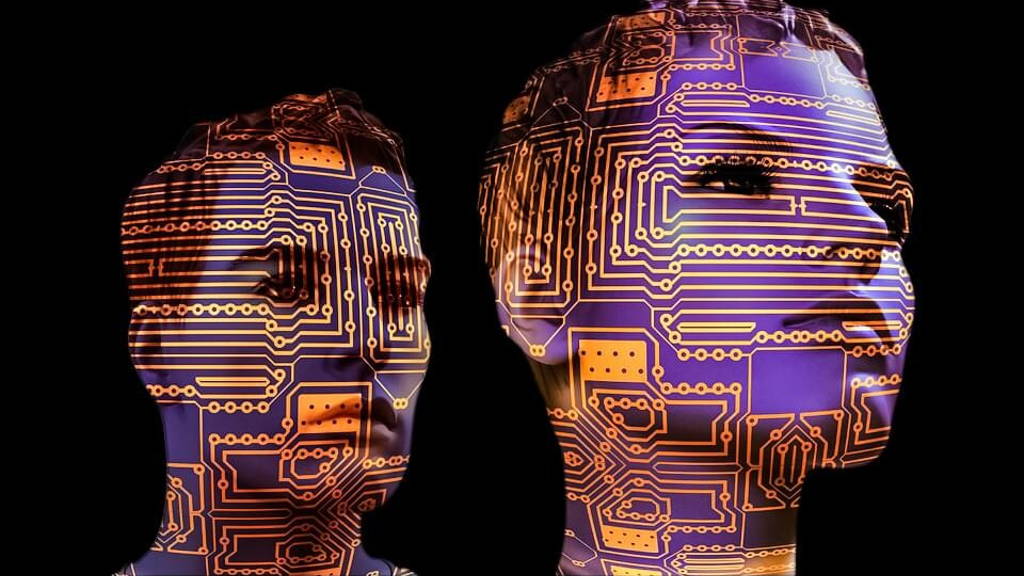Lathan, as the Chair of the Global Agenda Council on Artificial Intelligence and Robotics, has been part of many discussions on the impacts of these technologies, both good and bad. Three trends in particular strike her as having a revolutionary impact on how we see ourselves and others: human augmentation, social robots, and the open AI ecosystem. The future will no longer be about curing, but about preventing ilnesses from even developing.
Then there is SARA: the Socially-Aware Robot Assistant developed by Carnegie Mellon University’s Dr. Justine Cassell. It interacts with people in a whole new way, personalizing the interaction and improving task performance by relying on information about the relationship between the human user and virtual assistant.
Lathan thinks the impact on healthcare will also be dramatic. ‘We’ve heard a lot about connected medical devices that are creating a digital health revolution and putting medical care in the hands of consumers. The real impact of the Open AI Ecosystem however, will help keep people healthy and “whealthy.” The Global Agenda Council on Aging recently held a workshop on Cognition, Aging, and the Financial System. The premise was that as our wealth increases, our health and more specifically our cognitive health decreases. A smart curation of the data made available through the Open AI Ecosystem could not only prevent costly mistakes in financial management but also alert clinicians or loved ones to at-risk changes in behavior.
1: Human augmentation
Technology can be used to augment the information processing loop – sensing, processing and acting on information - at any of those points. On the sensing side, we move toward not just replacing lost vision or hearing, but enhancing it. For example, Doppler Labs has created earplugs that can filter out sounds that we don’t want and enhance the sounds we want to hear. Also, prosthetics keep getting more and more robotic. finally, on the processing side, Google is developing a contact lens that will sense your body temperature and glucose levels to help you manage your diabetes. For the further future work is done on improving our ability to process and remember information – The Defense Advanced Research Project Agency (DARPA) has a research program to develop implantable devices to help restore memory.2: Social robots
Social robots use artificial intelligence to understand people and respond appropriately. Advances in natural language processing and social awareness algorithms have already begun to make social robots dramatically more useful to consumers as companions or personal assistants. For example, the Amazon Echo digital assistant Alexa, is one of the first social robots for consumers. Jibo, supposed to hit the market this year, is a connected robotic personal assistant, kind of like a cross between the echo, a robotic toy, and your computer.Then there is SARA: the Socially-Aware Robot Assistant developed by Carnegie Mellon University’s Dr. Justine Cassell. It interacts with people in a whole new way, personalizing the interaction and improving task performance by relying on information about the relationship between the human user and virtual assistant.
3: The open AI ecosystem
The World Economic Forum named the open AI ecosystem as one of the Top 10 Emerging Technologies of 2016 - though the above mentioned Dr. Cassell believes AI is not a technology, but a technique for understanding people and making machines act the way people do. An open AI ecosystem refers to the idea that with an unprecedented amount of data available, combined with advances in natural language processing and social awareness algorithms, applications of AI will become increasingly more useful to consumers. Smart personal digital assistants, such as Alexa or Jibo, will be examples of this.Lathan thinks the impact on healthcare will also be dramatic. ‘We’ve heard a lot about connected medical devices that are creating a digital health revolution and putting medical care in the hands of consumers. The real impact of the Open AI Ecosystem however, will help keep people healthy and “whealthy.” The Global Agenda Council on Aging recently held a workshop on Cognition, Aging, and the Financial System. The premise was that as our wealth increases, our health and more specifically our cognitive health decreases. A smart curation of the data made available through the Open AI Ecosystem could not only prevent costly mistakes in financial management but also alert clinicians or loved ones to at-risk changes in behavior.






